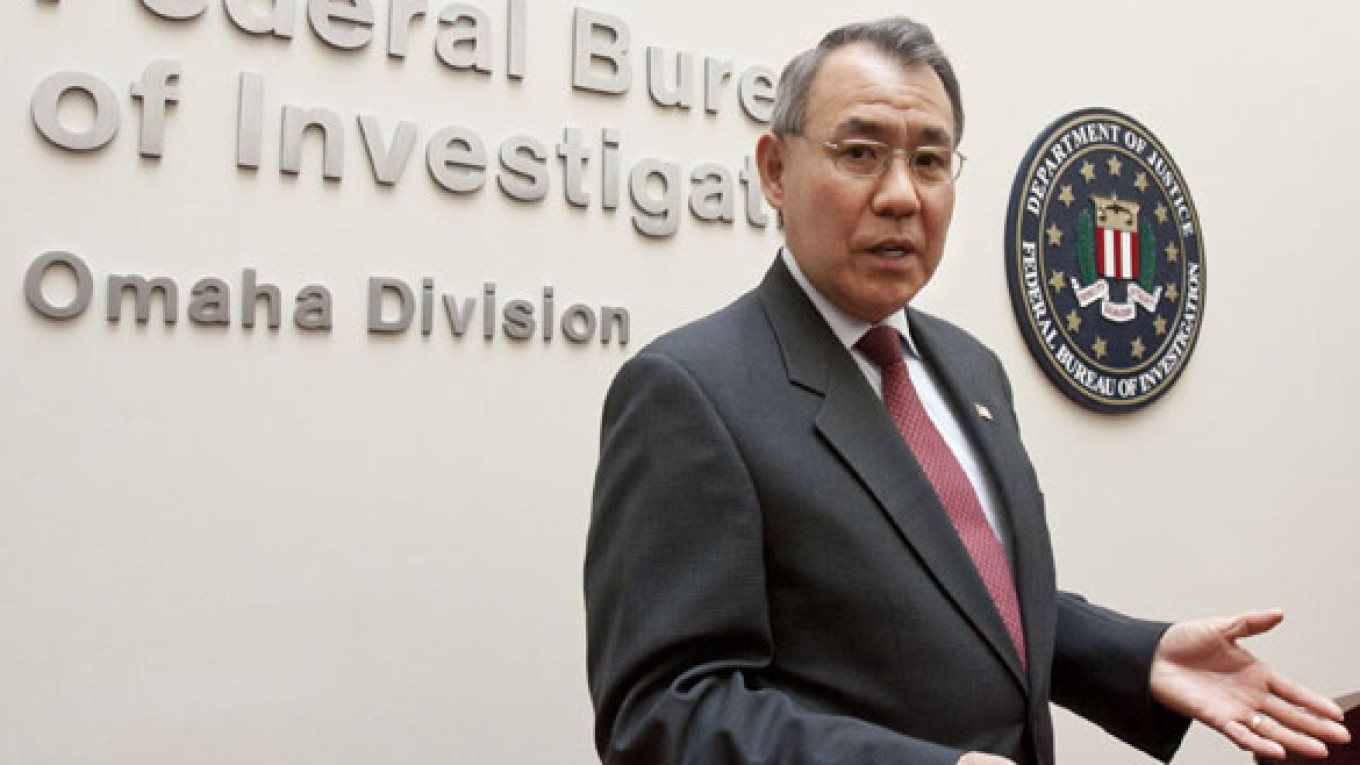Eleven Russian students are among 20 people detained in the United States on suspicion of working for an international group of hackers that stole at least $70 million from bank accounts worldwide.
The FBI called the hacker ring "one of the largest cyber criminal cases we have ever investigated," but news reports said the Russian detainees were only underlings looking for easy cash.
Six Russian suspects were detained Tuesday, following an FBI announcement last week that five others had been charged, Rossia One state television reported, citing the Russian consulate in New York.
The consulate's third secretary, Alexander Otchaynov, told Kommersant in a story published Monday that one suspect, Margarita Pakhomova, was detained aboard a plane as she prepared to leave the United States on Sept. 16.
Another of the 11 suspects, Sofia Dikova, was detained in January at Newark's Liberty Airport with a pile of fake documents that the hackers used to open bank accounts, Otchaynov said.
The suspects were students who had arrived in the United States to work on a J-1 visa, Otchaynov said. The FBI said all of them were aged 20 to 26, Rossia One reported.
The FBI said Friday that the ring managed to steal $70 million and tried to steal another $150 million, mostly from accounts of medium-sized companies, towns and even churches.
The hackers e-mailed their victims a Zeus Trojan virus, sometimes disguised as an invitation to the LinkedIn social network, the FBI said. The virus stole passwords to users' bank accounts, allowing the criminals to transfer the money to their own accounts, opened under fake names.
Among other suspects are citizens of Ukraine, Belarus, Moldova and Kazakhstan. Photos and names of many of the suspects have been posted on the FBI's web site.
The Russian detainees were middlemen who transferred stolen money to the still-unidentified masterminds of the ring in Eastern Europe, Kommersant said.
The suspects face up to 30 years in jail and a fine of up to $500,000 on a variety of charges, including money laundering, bank fraud and identity theft, Rossia One said. But actual sentences in such cases rarely exceed three years, Kommersant said.
Maria, a Russian student from Irkutsk who went to work in the United States this summer, told The Moscow Times that Russian expatriates in the United States asked her and her friends to open accounts in various U.S. banks, promising to pay for it, but they refused.
The New York Times reported Aug. 21 about cyber criminals who earned more than $10 million by placing fictitious charges of less than $10 on U.S. consumers’ bank cards and moving the money to bank accounts in Lithuania, Estonia, Latvia, Bulgaria, Cyprus and Kyrgyzstan.
The Federal Trade Commission filed a civil suit against the scammers, whose scheme involved more than 1 million people, in Chicago in March, the report said.
It was not immediately clear whether the defendants sued in Chicago were the same as those detained by the FBI.
Also in August, three men, including two Russians, were indicted in the United States on charges of stealing more than 130 million credit and debit card numbers from 2006 to 2008.
A Message from The Moscow Times:
Dear readers,
We are facing unprecedented challenges. Russia's Prosecutor General's Office has designated The Moscow Times as an "undesirable" organization, criminalizing our work and putting our staff at risk of prosecution. This follows our earlier unjust labeling as a "foreign agent."
These actions are direct attempts to silence independent journalism in Russia. The authorities claim our work "discredits the decisions of the Russian leadership." We see things differently: we strive to provide accurate, unbiased reporting on Russia.
We, the journalists of The Moscow Times, refuse to be silenced. But to continue our work, we need your help.
Your support, no matter how small, makes a world of difference. If you can, please support us monthly starting from just $2. It's quick to set up, and every contribution makes a significant impact.
By supporting The Moscow Times, you're defending open, independent journalism in the face of repression. Thank you for standing with us.
Remind me later.


